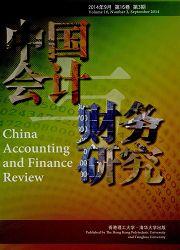CEO facial trustworthiness and corporate governance
引用次数: 1
Abstract
PurposeIn this paper the authors aim to argue that the existence of a strong corporate governance mechanism (a formal credibility-enhancing mechanism) and the presence of a more trustworthy-looking CEO (an informal credibility-enhancing mechanism) are substitutes.Design/methodology/approachBy using machine-learning-based facial-feature-point detection technique, the authors construct a proprietary facial-trustworthiness database for a large-scale of CEOs in the US listed companies. First, the authors manually search for qualifying CEO image from websites and annual reports. Second, by following the neuroscience and psychology literature, the authors use the machine-learning-based face detector to identify the facial features in the CEO photos to calculate a rich and reliable set of facial-trustworthiness measures. The authors then construct a composite facial-trustworthiness index for each CEO. After obtaining accounting data, the authors’ final sample comprises 16,201 firm-year observations for 3,186 CEOs in the sample period of 2000-2018.FindingsThe results of the authors’ regression analyses show a negative association between board monitoring intensity and CEOs' facial trustworthiness, indicating that board directors may factor CEOs' facial trustworthiness into their monitoring decisions. Moreover, the authors find that these results are mainly driven by CEOs whose tenure is below the third quartile (i.e. eight years). The authors further find stronger results for externally hired CEOs than internally promoted CEOs. Finally, the authors’ results remain robust when using change models or subsample of CEO photos in recent years.Originality/valueFirst, to the best of the authors’ knowledge, this is the first study that adopts a large sample to provide systematic evidence on the directors' use of facial trustworthiness. This study extends the literature by documenting the impacts of CEOs' individual characteristics on the board monitoring intensity. Second, the results of this study emphasized the important role of perceptions based on executives' facial appearance in firm valuation, executive compensation and audit fee, and by presenting empirical evidence that CEOs' facial trustworthiness affects board monitoring intensity. Third, this study responds to the call for research on personalized trust by Hsieh et al. (2020).CEO诚信与公司治理
目的在本文中,作者旨在论证一个强大的公司治理机制(一个正式的信誉增强机制)的存在和一个看起来更值得信赖的首席执行官(一个非正式的信誉增强机构)的存在是替代品。设计/方法论/方法利用基于机器学习的人脸特征点检测技术,为美国上市公司的大规模CEO构建了一个专有的人脸可信度数据库。首先,作者从网站和年度报告中手动搜索符合条件的CEO形象。其次,通过遵循神经科学和心理学文献,作者使用基于机器学习的人脸检测器来识别CEO照片中的面部特征,从而计算出一组丰富可靠的面部可信度指标。然后,作者为每位CEO构建了一个综合的面部可信度指数。在获得会计数据后,作者的最终样本包括2000-2018年样本期内3186名首席执行官的16201个公司年度观察结果,这表明董事会可能会将CEO的面部可信度纳入他们的监督决策中。此外,作者发现,这些结果主要是由任期低于四分之三(即八年)的首席执行官推动的。作者进一步发现,外部聘用的CEO比内部晋升的CEO的结果更强。最后,当使用近年来CEO照片的变化模型或子样本时,作者的结果仍然稳健。原创性/价值首先,据作者所知,这是第一项采用大样本来提供董事使用面部可信度的系统证据的研究。本研究通过记录首席执行官的个人特征对董事会监控强度的影响来扩展文献。其次,本研究的结果强调了基于高管面部表情的感知在公司估值、高管薪酬和审计费用中的重要作用,并通过提供经验证据表明首席执行官的面部可信度影响董事会监督强度。第三,本研究回应了Hsieh等人对个性化信任研究的呼吁。(2020)。
本文章由计算机程序翻译,如有差异,请以英文原文为准。
求助全文
约1分钟内获得全文
求助全文

 求助内容:
求助内容: 应助结果提醒方式:
应助结果提醒方式:


